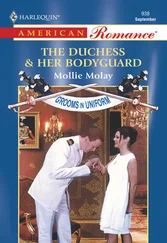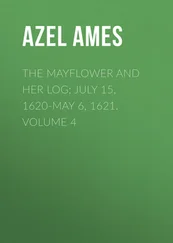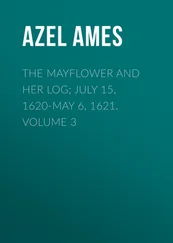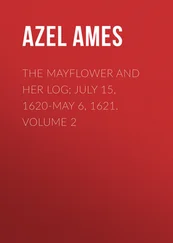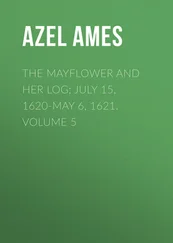During our joint tenancy, Dotty and I often liked to get ready for the return of our men by cooking a communal dinner – a pleasant exercise of sisterhood. Talking, talking, we cleaned and mashed the spuds, debated how much butter we could spare to make them appetising, and shelled heroes’ quantities of green peas. Occasionally, as we chatted, she might go and find a book from the bedroom, stand with a frown thumbing through it and, finding the page, hand it to me to read while she went back to stirring the vegetable pot or reducing the flame beneath it.
I have said this before, in one or two minor literary magazine interviews, that Dotty was my chief educator. I thought Spender’s poetry, which I read at Dotty’s urging, astounding. That’s putting it mildly. Spender – with his talk of the treachery of banks and cathedrals and of the insanity of rulers – had nothing in common with me; and my innocent father, a good servant of society and a survivor of the world Depression, would have found his socialism offensive. Spender had little time for rhyme and punctuation. He was too busy educating the reader in the space of one poem.
Before the war, before her travels, Dotty had met Louis MacNeice at a party in Bloomsbury. Evelyn Waugh, of whom I had until then never heard, had told her offhandedly that he disliked stringy women like her, that they generally had narrow opinions and tendencies to ‘improve’ men. That was after she had published her novel, and was ripe to be put in her place by other writers. Breaking away from such posturers, she had begun her rough travels in Turkey and the Middle East, and met Mortmain on the beach in Penang.
Let’s have a gin before the men get home, she always suggested, and I agreed to the idea as if it was something daring and revolutionary, which indeed it still was in my terms.
On my second afternoon in Melbourne, we hadn’t finished it when Leo let himself in. Seeing me evoked such a frank joy in his face that I felt myself instantly exempt from the wistfulness of Dotty’s earlier poem. Cooking’s afoot! he yelled, and lifted me and carried me around the living room and back to the kitchen. Dotty was smiling too at this demonstration of exuberant love. He put me down.
You’re stacking on the weight, old girl, he said, imitating a husband of greater age, a Braidwood pastoralist, say. Then he frowned. Rufus won’t be back for a while, he told Dotty, and her face instantly clouded.
Where is he?
Leo said uncomfortably, I’m not sure. I think he might have gone down to Port Melbourne to inspect something, a vessel, you know. He can’t always tell what they might expect of him.
How long is this inspection to take? asked Dotty.
Leo made a pained face.
Dotty asked again, Will he be home for dinner?
Leo told her, Well, he didn’t actually tell me he wouldn’t be.
We turned down the stove and waited, and Leo kept on apologising to Dotty as if it were his fault.
He said, Grace and I might go to the pictures. If Rufus is back in time, perhaps you and he would like to come too. It’s Errol Flynn.
Then you’ll be looking at yourself on the screen, I joked.
Wasn’t he arrested this year for rape? asked Dotty, as if our happiness bothered her.
I’m not sure, said Leo. I hope not. He’s a Tasmanian, you know.
Leo and I were pleased to eat dinner hurriedly while listening to the ABC news and then get away to the pictures. Errol Flynn was a Norwegian villager who stood up against the Nazis. He was starting to look older than Leo, like an elder brother. But his eyes still glittered on the screen and I was sure he couldn’t possibly be guilty of rape.
When we got home at eleven, the flat felt cold and we heard a shrill question from Dotty in the Mortmain bedroom and the appeasing rumble from Rufus.
Let’s go to bed, said Leo, looking very grim but then smiling broadly.
The next morning, Leo and I encountered all the worst aspects of sharing the flat. Dotty was thunderously silent, and Rufus behaved like someone in a play, the breezy fellow who enters towards the end of act one, tennis racket in hand, sweater over shoulders, oblivious to the crisis that’s overtaken all the other characters. In as far as he could dance, he danced around Dotty, his comedic glass in his eye, trying too hard. Could I pass you the milk, dear? Try this marmalade a Yank gave me. And so on.
I now know what was happening with Charlie Doucette in England at that time. He had fallen in love with an appliance of war, a sort of sub-submarine, a little boat piloted by one man. This vessel could proceed on the surface by battery power, and so required no paddles. It could also submerge, so that only the driver’s head was visible, or it could go underwater entirely, the driver wearing goggles, and with an oxygen supply device clamped between his lips. The record shows it was an Englishman, Major Frampton, who introduced him to it and to a young instructor named Sublieutenant Lower who could do the loop-the-loop with it underwater. Doucette wanted a go at it. If he could handle it, it would be very suitable for his buccaneering plans.
I believe that, when he practised aboard the submersible in the deep, dark water of a reservoir outside London, Doucette dealt easily with the normal human problems of fear of drowning, of underwater claustrophobia in water greyer and dimmer than the greyest, dimmest English sky. Doucette was first of all a creature of water, and I doubt he had too many of the normal phobias. Doucette had to be lived up to by other men who knew normal, pedestrian fears. A man who would know fear, the Englishman Frampton, the inventor of the little submersibles, reacted to Doucette’s enthusiasm for the machine and pleaded to be allowed to come with Doucette and have a role in Doucette’s new enterprise.
On his English journey, Doucette also visited a British mine-laying submarine, and found out that if you built special containers for the submersibles, a number of them could be transported in the compartments generally devoted to mines.
His mother, Lady Doucette, was living with her English relatives in Wiltshire. She had left Dublin for the time being as a protest against de Valera’s insistence that Ireland remain neutral. She came from hard-up English gentry and had married into the Doucettes’ ready cash, giving the Doucettes social cachet while the Doucettes paid the bills. For whatever reason, Doucette had given SOE her address as his ‘care of’ address in Britain. Lady Doucette was a robust woman, but she later told Tom Lydon she sought the normal reassurances from Charles that a mother should. In his book, Lydon sets down, accurately or not, a standard mother–son conversation:
How are your quarters?
Quite comfortable, thanks, Ma.
And you wouldn’t do anything ill-advised?
Of course not, Ma. I intend to come back and take you dancing.
The conversation sounds credible. Though it’s dying out, that understated language is still used by the sort of British gents my second husband, Laurie Burden, had business with. But in Doucette’s day, it was a sort of safety net thrown over the cruelties that young men could inflict, and have inflicted on them.
The evening of his visit to his mother and aunt, Doucette caught the village taxi to the local railway station. He was about to be returned to Australia by a succession of military aircraft. A quarter of an hour after he left, an urgent telegram arrived for him. After some discussion, Lady Doucette and her stepsister called the police to come and collect the telegram and rush it to the station. The train had already left for London by the time they got it there, so they brought it back to Lady Doucette. They must open the telegram, the two women decided, so that its contents could be relayed to a number at SOE in Baker Street, London. The telegram, from the International Committee of the Red Cross, begged to inform that Doucette’s wife and son, Minette and Michael, were alive, and prisoners of the Japanese. They were presently held in Satsuoka internment camp in Japan, and were in moderately good health. The SS Tonkin , on which they had been travelling to join Doucette in India, had been intercepted in the Indian Ocean by the German raider Jaguar . Its commander gave Tonkin ’s captain a choice between capture and being blown to pieces. For the sake of his passengers, the captain chose capture. The German put a crew aboard Tonkin and sailed it to the Japanese port of Yokohama. From there, the 130 passengers were taken by train to the upland town of Satsuoka and internment in a convent building.
Читать дальше




